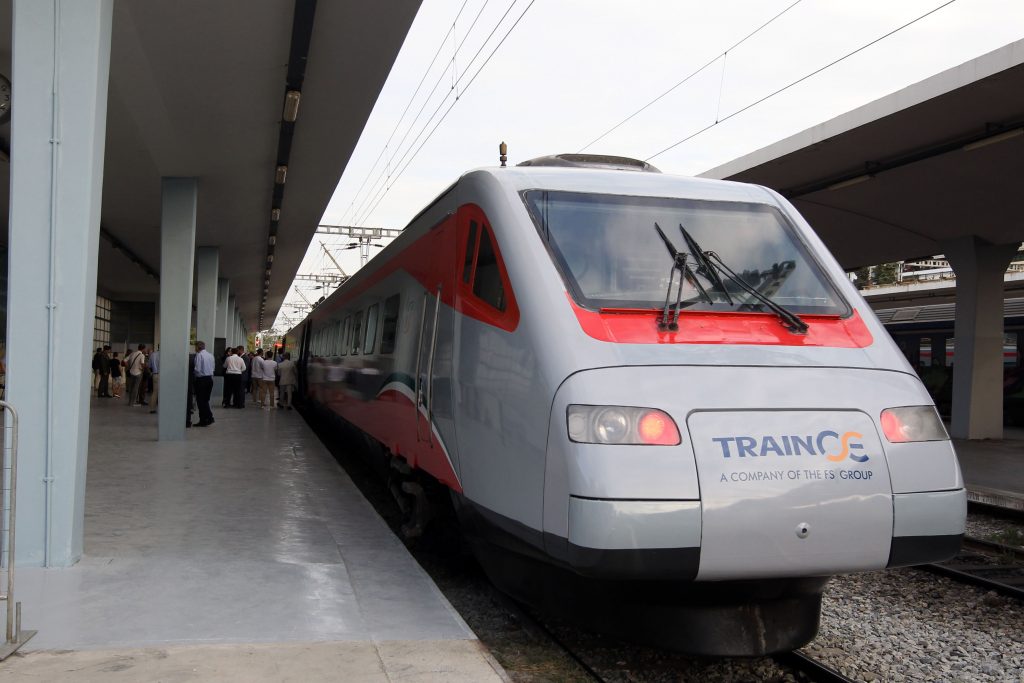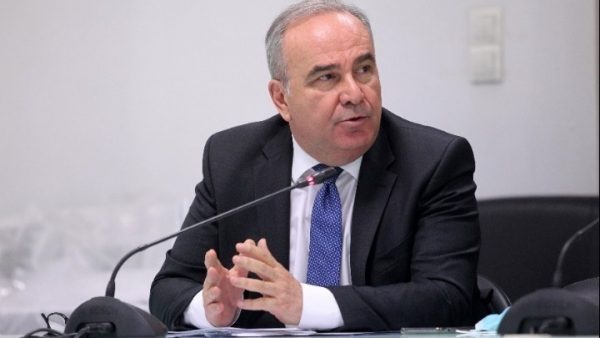
A partial restart of rail services in Greece is scheduled for Wednesday, more than three weeks after the worst train accident in the country’s history.
The first train to run after the Feb. 28 train collision in north-central Greece will cover a very short route from the main station in Athens to the small town of Inoi, due north of the Greek capital. The locomotive and carriages will depart at 4:45 a.m. (02.45 GMT) and carry the new CEO of the state-run Hellenic Railways Organisation (OSE), Panagiotis Terzakis.
OSE has been in the “eye of the storm” after the train collision due to charges of omissions, poor management, lack of professionalism, inferior staff training, and above all, human error involving a junior station master (traffic director) who, by all accounts, shifted one passenger train into the path of an ongoing freight train just south of the entrance of the Tempi Valley Gorge. The current government and previous governments have also come under sharp criticism by the media, in social media and in the wider public opinion for the state of the paltry – by European standards -rail network in Greece.
At the same time, many routes will remain suspended, pending implementation of new or stepped up security measures and beefed up staffing, with several measures demanded by rail-related unions in order to allow members to return to their posts.
One union, representing train conductors, has called for a one-week delay in the restart of rail services.
Two stations masters will work on shifts
Among other, trains will run at different hours during nightfall, even if they’re running on opposite tracks. Two stations masters will work on shifts where only one was previously scheduled, along with two train conductors serving per train. Carriage staff will also be increased, and speeds on portions of tracks without signaling will be lowered.
In a related development, speaking from Brussels on Tuesday, Minister of State Giorgos Gerapetritis, who “inherited” the rail transport and infrastructure portfolio after the resignation of the relevant transport minister after the Tempi tragedy, said Athens will request cooperation with the EU Commission for the railways sector.
While at the Commission’s seat, the Greek minister met with EU Commission for Cohesion and Reforms Elisa Ferreira, EU Commissioner for Transports Adina Ioana Vălean and the head of cabinet for Commission President Ursula von der Leyen, Bjoern Seibert.
According to reports, Commission leaders pledged to assist Athens in investigating the causes of the rail disaster – which claimed the life of 58 people – but even more importantly, Brussels will help in formulating a new framework of operation for Greece’s antiquated railways network and infrastructure.
Latest News

Fitch Ratings Upgrades the Four Greek Systemic Banks
NBG’s upgrade reflects the bank’s ongoing improvements in its credit profile, Fitch notes in its report, including strong profitability, a reduction in non-performing exposures (NPEs), and lower credit losses

Trump to Announce Sweeping New Tariffs Wednesday, Global Retaliation Expected
With Trump's announcement just hours away, markets, businesses, and foreign governments are bracing for the fallout of one of the most aggressive shifts in U.S. trade policy in decades.

Inflation in Greece at 3.1% in March, Eurostat Reports
Average inflation in the eurozone settled at 2.2%, compared to 2.3% in February

Greece’s Unemployment Rate Drops to 8.6% in February
Despite the overall decline, unemployment remains higher among women and young people.

Jerry Kalogiratos Highlights Key Role of Energy Transition and Data Demand in LNG Outlook
Energy transition and the prospects of LNG were discussed at Capital Link’s 19th Annual International Maritime Forum, during a panel discussion with Jerry Kalogiratos (Capital Clean Energy Carriers Corp.)

Santorini Safe and Ready for a Dynamic Tourism Season
Authenticity, cultural heritage, and genuine experiences at the center of Santorini's new promotional campaign

Electricity Bills: Greece Announces Reduced Tariffs Schedule
Greece will now offer lower electricity rates between 11:00-15:00 and 02:00-04:00

Chevron Confirms Eyeing Natural Gas Exploration South of Crete
Chevron recently declared its intent to explore a third area, south of the Peloponnese.

Evangelos Marinakis: A time of change from which shipping can benefit
Speaking at the 19th Annual Capital Link International Shipping Forum Evangelos Marinakis stressed the challenges that shipping faces today

Retail Trade in Greece Up 2.5% in December 2024: ELSTAT
In January 2025, the General Turnover Index recorded a 2.5% increase compared to January 2024. Compared to December 2024, it recorded a significant decline of 18.4%











![Τουρκία: Μεγάλες βλέψεις για παραγωγή ηλεκτρικών οχημάτων [γράφημα]](https://www.ot.gr/wp-content/uploads/2025/03/ot_turkish_autos-90x90.png)











![ΕΛΣΤΑΤ: Αυξήθηκε η οικοδομική δραστηριότητα κατά 15,6% το Δεκέμβριο [πίνακες]](https://www.ot.gr/wp-content/uploads/2025/03/DSC9655-2-1024x569-1-90x90.jpg)
















 Αριθμός Πιστοποίησης
Αριθμός Πιστοποίησης